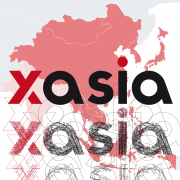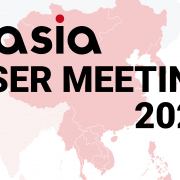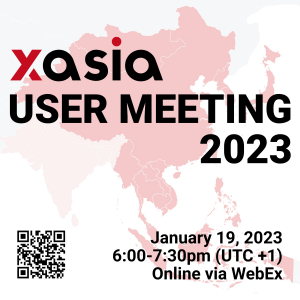CrossAsia Talks: Dr. Andrea Acri 12.10.2023
(See English below)
Wir freuen uns sehr, Ihnen den Vortrag von Herrn Dr. Andrea Acri zum Thema Dharma Pātañjala ankündigen zu dürfen. Herr Dr. Acri wird am Donnerstag, dem 12. Oktober, einen Vortrag mit dem Titel „The Old Javanese-Sanskrit Dharma Pātañjala: Pātañjala Yoga in a Javanese Śaiva Garb“ im Simon-Bolivar-Saal (Potsdamer Straße 33, 10785 Berlin) halten. Der Vortrag wird sich mit dem altjavanischen Text Dharma Pātañjala beschäftigen, und wie dieser einen neuen Blickwinkel auf das Pātañjalayogaśāstra ermöglicht.
The 15th-century codex unicus containing the Old Javanese text Dharma Pātañjala (MS Schoemann I 21, Staatsbibliothek zu Berlin, 89 leaves) is an important and in many respects unique object. Besides documenting a rare tradition of palmleaf manuscripts from West Java, it is also among the oldest manuscripts recovered in the Indonesian archipelago. Further, the Dharma Pātañjala provides the most complete, coherent, and detailed exposition of Śaiva philosophy and theology to be found in an Old Javanese text; even more interestingly, it adopts Pātañjala yoga, attuning to a Śaiva soteriological and theological framework. Nearly a third of it follows the order of the main topics treated in the first three chapters of the Sanskrit Yogasūtras-cum-Bhāṣya (i.e., the Pātañjalayogaśāstra), interweaving a few Sanskrit stanzas with an Old Javanese commentary that is related to that embedding the Yogasūtra. Thus, the Dharma Pātañjala not only allows us to read the Pātañjalayogaśāstra from a fresh perspective, providing us with new insights into the textual transmission and cultural reception of Patañjali’s work beyond the boundaries of South Asia, but also helps us to reconstruct many important aspects of pre-Islamic religion and philosophy in Java.
Die Vortragssprache ist Englisch. Wir bitten Sie um Voranmeldung für den Vortrag unter: ostasienabt@sbb.spk-berlin.de und eine kurze Mitteilung, falls Sie einen barrierefreien Zugang benötigen. Die Veranstaltung wird gefilmt.*
Der Vortrag wird darüber hinaus via Webex gestreamt und aufgezeichnet. Sie können am Vortrag über Ihren Browser ohne Installation einer Software teilnehmen. Klicken Sie dazu unten auf „Zum Vortrag“, folgen dem Link „Über Browser teilnehmen“ und geben Ihren Namen ein.
Alle bislang angekündigten Vorträge finden Sie hier. Die weiteren Termine kündigen wir in unserem Blog, auf unserem Twitteraccount sowie auf Mastodon an.
—
We are very pleased to announce the lecture by Dr. Andrea Acri on Dharma Pātañjala. Mr Acri will give a lecture titled „The Old Javanese-Sanskrit Dharma Pātañjala: Pātañjala Yoga in a Javanese Śaiva Garb“ on Thursday 12 October in the Simon Bolivar Hall (Potsdamer Straße 33, 10785 Berlin). The lecture will focus on the ancient Javanese text Dharma Pātañjala and how it provides a new perspective on the Pātañjalayogaśāstra.
The 15th-century codex unicus containing the Old Javanese text Dharma Pātañjala (MS Schoemann I 21, Staatsbibliothek zu Berlin, 89 leaves) is an important and in many respects unique object. Besides documenting a rare tradition of palmleaf manuscripts from West Java, it is also among the oldest manuscripts recovered in the Indonesian archipelago. Further, the Dharma Pātañjala provides the most complete, coherent, and detailed exposition of Śaiva philosophy and theology to be found in an Old Javanese text; even more interestingly, it adopts Pātañjala yoga, attuning to a Śaiva soteriological and theological framework. Nearly a third of it follows the order of the main topics treated in the first three chapters of the Sanskrit Yogasūtras-cum-Bhāṣya (i.e., the Pātañjalayogaśāstra), interweaving a few Sanskrit stanzas with an Old Javanese commentary that is related to that embedding the Yogasūtra. Thus, the Dharma Pātañjala not only allows us to read the Pātañjalayogaśāstra from a fresh perspective, providing us with new insights into the textual transmission and cultural reception of Patañjali’s work beyond the boundaries of South Asia, but also helps us to reconstruct many important aspects of pre-Islamic religion and philosophy in Java.
The lecture will be held in English. We kindly ask you to register in advance at: ostasienabt@sbb.spk-berlin.de, and to let us know if you need barrier-free access. The event will be filmed.*
The lecture will also be streamed and recorded via Webex. You can take part in the lecture using your browser without having to install a special software. Please click on the respective button “To the lecture” below, follow the link “join via browser” (“über Browser teilnehmen”), and enter your name.
You can find all previously announced lectures here. We will announce further dates in our blog, on Twitter and Mastodon.

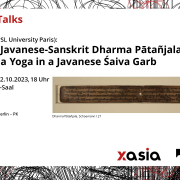
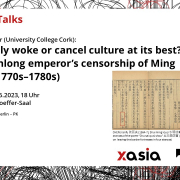 SBB-PK
SBB-PK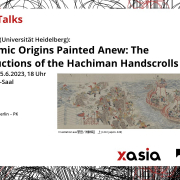 SBB-PK
SBB-PK
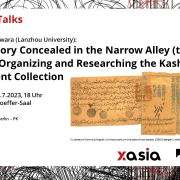 SBB-PK
SBB-PK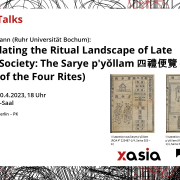 SBB-PK
SBB-PK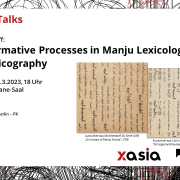 SBB-PK
SBB-PK
